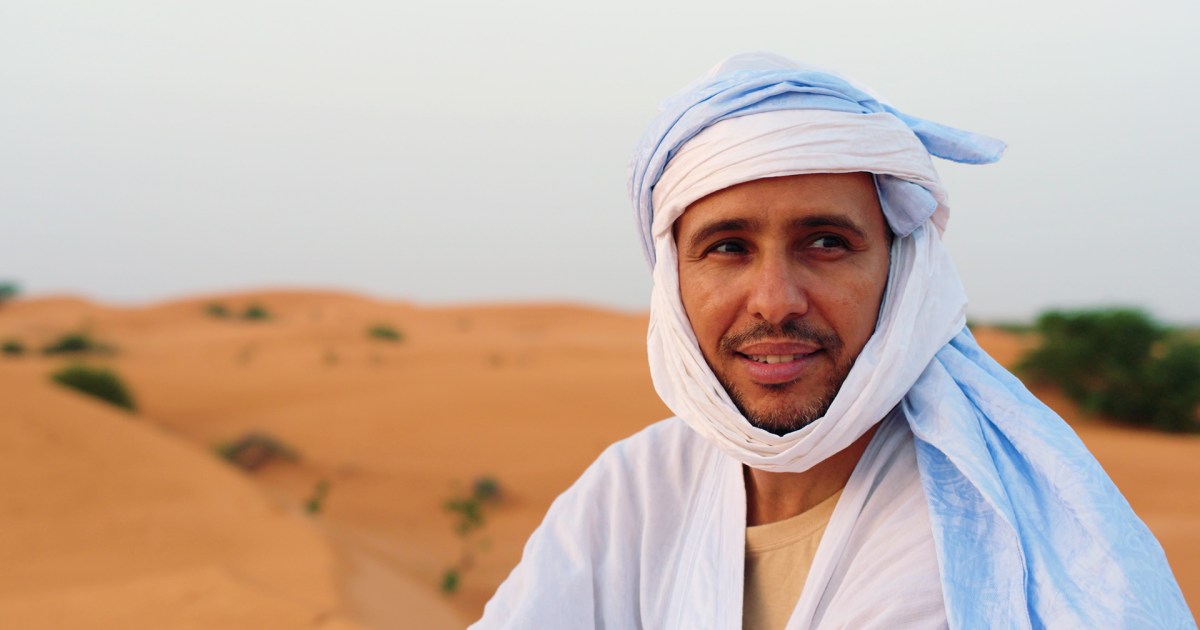Twenty years after the attacks of September 11, 2001, the United States is still grappling with the consequences of brutal interrogations conducted in the name of national security.
Mohamed Ould Slahi, a Mauritanian engineer and former Guantanamo prisoner;
He studied communications engineering in Germany, and Washington accused him of being involved in the September 11 attacks, and placed him in Guantanamo Bay for 14 years;
He was released in 2016. He was the only Guantanamo prisoner handed over by his country to the US administration.
A report by the American newspaper The New York Times dealt with details of the torture that Ould Slahi was subjected to in the summer of 2003 in Guantanamo.
There were guards who threatened to attack him with dogs and beat him so badly that they broke his ribs.
The soldiers - who tied him up - terrified him with "heavy metal" music and strong lights, immersed him in ice water, and deprived him of sleep for months on end, in addition to isolating him in a way that paralyzes the mind in a dark cell without his Quran.
He was also subjected to female guards who exposed themselves in front of him and touched him in a sexual way in an attempt to provoke him religiously.
But what left Slahi in a state of utter despair, he said, was the interrogator who tried to threaten him in order to force him to confess that he was complicit in planning a terrorist attack.
"If you don't confess to this, we will kidnap your mother and rape her," the investigator said in Ould Slahi's account.
Ould Slahi replied, "This is unfair."
The investigator replied at the time, "I am not looking for justice; I am looking to prevent planes from hitting buildings in my country."
"You need to catch these people, not me," Slahi replied.
Today, the New York Times says, Slahi, 50, was born a free man in Mauritania, his home in West Africa, after nearly 15 years in detention, during which he was threatened with the death penalty.
In the end, he was released in 2016 without charge, and his confessions were withdrawn under duress, in a case the prosecutor deemed useless in court due to the brutality of the interrogation.
"I was so naive, I didn't understand how things are going in America," Ould Slahi said.
The New York Times says that two decades after the events of the attack on the World Trade Center towers, the legacy of torture in the United States - and for Ould Slahi - remains complex and multifaceted.
The administration of former US President George W. Bush decided to set aside legal and moral restrictions in the name of national security.
According to the American newspaper, the United States has stopped using the “enhanced interrogation method” (torture) in interrogating suspects after studies have proven that it is a counterproductive or counterproductive method, in the “secret” prisons run by the CIA or in the Guantanamo Bay detention center. .
However - the newspaper adds - that resorting to the method of torture with the approval of the government remains a disgrace that tarnishes the country's reputation and undermines its ability to confront repression in other parts of the world.
The newspaper continues, "Even today, some former Bush administration officials may be exposed to the risks of interrogation when traveling to Europe by investigators based on the United Nations Convention against Torture."
After his first meeting with US President Joe Biden last June, Russian President Vladimir Putin reminded reporters that Guantanamo is still open and that the CIA has practiced torture in secret foreign prisons. "Is this a human right?"
The American newspaper believes that the issue of torture has complicated efforts to bring to justice 5 accused of plotting the September 11 attacks, and quotes Adele Welty, whose son, who worked as a firefighter, died during efforts to confront the fire on the day of the attack;
"There was torture."
Mauritanian
The movie "The Mauritanian", which began showing in cinemas last February, showed the story of Ould Slahi, highlighting the story of one of the hundreds of prisoners inside Guantanamo, and how he spent years in prison without a clear charge or even trial. .
The story of the movie "The Mauritanian" is based on Ould Slahi's memoirs, which he published in 2015 entitled "Guantanamo Diaries", which topped the New York Times bestseller list, and the production of the film served as a director for him, as it enabled him to leave Mauritania for the first time since his release.
Ould Slahi published his memoirs from behind bars, becoming the first detainee in Guantanamo to publish his memoirs during his captivity, in which he focused on the cruel torture and years of imprisonment without trial, to reveal the brutal side of America that claims democracy.

